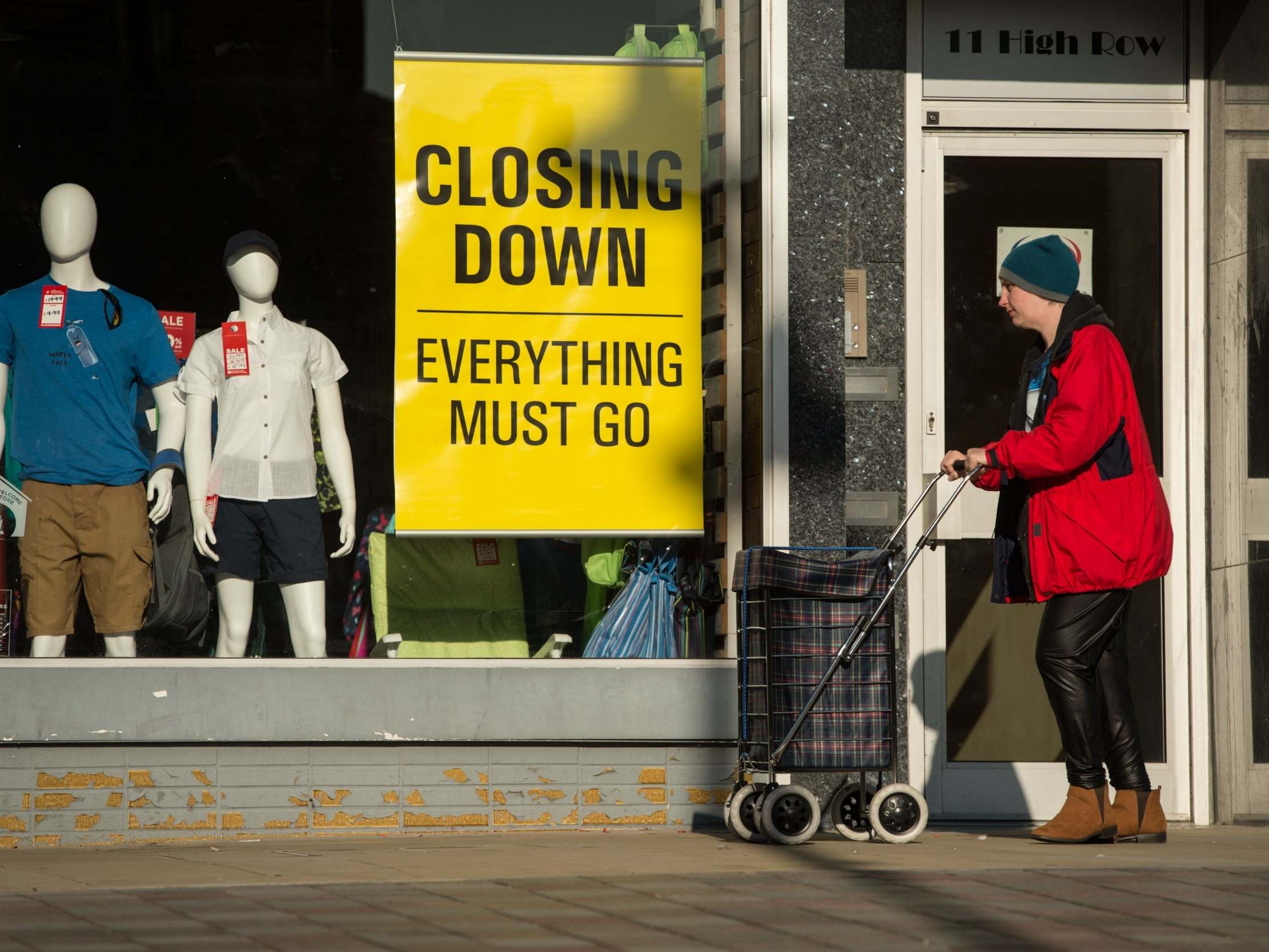Nearly 300,000 high street jobs lost over past decade, new study finds
Survey comes as ministers announce next phase of £1bn high street fund

Nearly 300,000 high street jobs have been lost in the past decade, with women disproportionally affected, according to analysis that highlights the crisis engulfing the embattled sector.
The figures come as the government announces the next phase of its £1bn future high street fund – aimed at rejuvenating town centres – with hundreds of millions set to be invested in 2020.
Speaking on Monday, Robert Jenrick, the communities secretary, will unveil 14 new pilot areas for the roll-out of the fund in England, including Salford, Croydon, Knowsley, Preston, Coventry and Rushmoor.
According to the Royal Society for the encouragement of Arts, Manufactures and Commerce (RSA), cashiers, bank clerks and hairdressers have been among those hit hardest by jobs lost in the 2010s.
The organisation claims that women have borne the brunt of the changes in the high street – representing 81 per cent of the 289,000 high street jobs lost.
This includes 67,000 of 75,000 retail cashier jobs affected, and 41,000 of 65,000 post office and banking clerk roles lost.
The RSA found that the fastest growing professions by net employment change were computer and software programmers – up by 72 per cent, or 162,000 roles.
Alan Lockey, the head of RSA future work centre, said: “Changes in the Labour market reflect changes in society, so we can see the impact of public sector austerity, the decline of the high street and the rise of e-commerce reflected in these figures.”
He added: “Automation is already here, and its effects are uneven. The carnage on the high street has hallowed out many jobs traditionally held by women, but areas of growth related to e-commerce, such as van driving, are going more to men. This is having a profound effect on individuals, families and society.
“In the 2020s, technological change will transform the labour market yet further. As more personal data becomes available, we could expect to see professions like behavioural scientists and data analysis rise in the tables in a decade’s time as the ‘precision economy’ develops.”
The findings from the RSA coincide with a separate study from the Centre for Retail Research which said 16,073 shops – around 61 every working day – closed down in 2019.
Professor Joshua Bamfield, the centre’s director, said he anticipated another tough year ahead for high streets, forecasting that store closures will rise by about 9 per cent to 17,565 during 2020.
He said: “The commercial pressures of higher labour costs, business rates and relatively weak demand will continue to undercut profits and force the weakest companies to close stores or enter administration.
“The high street and suburbs will continue to decline.”
But cabinet minister Mr Jenrick said on Monday the £1bn high street fund will aim to “help our high streets to adapt and evolve while remaining vibrant and safe places at the heart of our communities”.
He added: “Having announced the fist 101 high streets that can benefit from £25m each back in the summer, I am announcing support from our new high streets taskforce for a further 20 places and naming 14 of these today.
“Central to the mission of this new government is levelling up towns and regions, ensuring prosperity and opportunity are available to everyone.”
Join our commenting forum
Join thought-provoking conversations, follow other Independent readers and see their replies
Comments